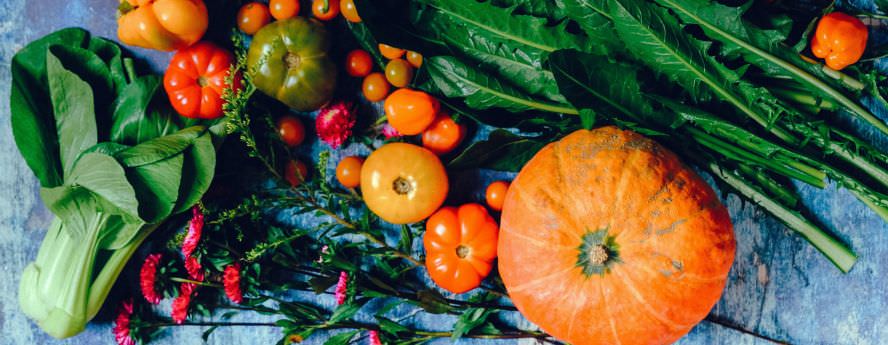
Not so long ago, seasonal eating wasn’t seen as a food trend – this was just the way we ate. Nowadays we can go into a supermarket at any time of the year and find apples, carrots, potatoes and almost any type of fruit and veg even if they are not in season. Despite this, eating seasonally has its own benefits.
Reasons to Eat Seasonally
- Save Money – When fruit and veg are in season, their availability is greater pushing their price down and making them more affordable for everybody.
- Support Local Suppliers - If they are also locally sourced, the transportation expenses and storage costs can be lower compared to imported products, saving us even more money. A good way to take advantage of this is to buy your groceries from local outlets, farmers or traditional markets, box schemes or even Pick Your Own stops (Campaign to Protect Rural England). In this way, you are not only saving money, but also supporting the local economy.
- Help the Environment – Local and seasonal food reduces food miles and therefore the energy (and CO2 emissions) needed to grow and transport it.
- Eat Fresh and Highly Nutritious Food - Foods that travel long distances to reach supermarkets are often picked before they are ripe and then they could be artificially “ripened” with ethylene gas. Fresh fruit could also be more nutritious; for example, researchers have found that imported broccoli contains only half of the vitamin C of in-season broccoli.
- Support Your Body’s Natural Nutritional Needs – Nature has a way of providing us with what we need depending on the season: winter vegetables offer comfort and provide lots of vitamins to keep our body healthy during the cold months, while summer food such as stone fruits have a lot of beta carotene that protects us from sun damage and the fresh vegetables we can use for a tasty cool summer salad.
Some Autumnal Foods
Apples
According to BBC Good Food, apples are one of the most widely cultivated tree fruits, and although they are available all year round, British apples are at their best from September through to November. BBC Good Food also talks about some of the health benefits of apples: they are rich in antioxidants which help protect our cells from damage and inflammation in the body, they contain dietary fibre which aids a healthy digestive system and they also contain vitamins A and C that support the immune system. They are also a good source of vitamin K that helps blood clotting, and vitamin B7 that helps break down fat and iodine which is involved in healthy thyroid function. BBC also suggest that apples may help in lowering cholesterol, protecting against diabetes and protecting against heart disease.
Pumpkin
The British pumpkin season runs from October to December. Many people only associate pumpkins with Halloween lanterns, but they can offer much more; Pumpkins are a good source of fibre and a range of vitamins and minerals. According to Healthline, pumpkins are very nutritious filled with carbs, fibre, protein, vitamins (B6, C, E and K), potassium, iron, and other minerals and are low in calories, as well as being very versatile to cook.
Pumpkin is also in the same family as butternut squash which is usually at its best in the UK from September to December; it is a good source of vitamins A and C, and can also help you increase your daily dietary fibre intake.
Pears
Pears are at their best from September through to January. There are many different varieties of pears which differ in shape and taste with something for almost everyone.
Men’s Health mention some of the health benefits of pears: they are a good source of pectin (a type of fibre), they are rich in flavanols and flavan-3-ols that seem to help protect against weight gain and type 2 diabetes.
Chestnuts
Chestnuts which are uniquely soft in texture because of their high water and low oil content, are around from the end of September to the end of January. According to BBC Good Food, chestnuts have the lowest fat content and number of calories compared to other nuts and they are rich in starchy carbs and fibre. Although they should never be eaten raw, chestnuts can be enjoyed in soups, sauces or desserts for a delicate sweet flavour.
It may not be something you have thought about or realised, but there are many benefits for your health, bank account and the environment in eating seasonally. Check out this fruit and vegetables calendar to help you plan a seasonal shopping timetable.